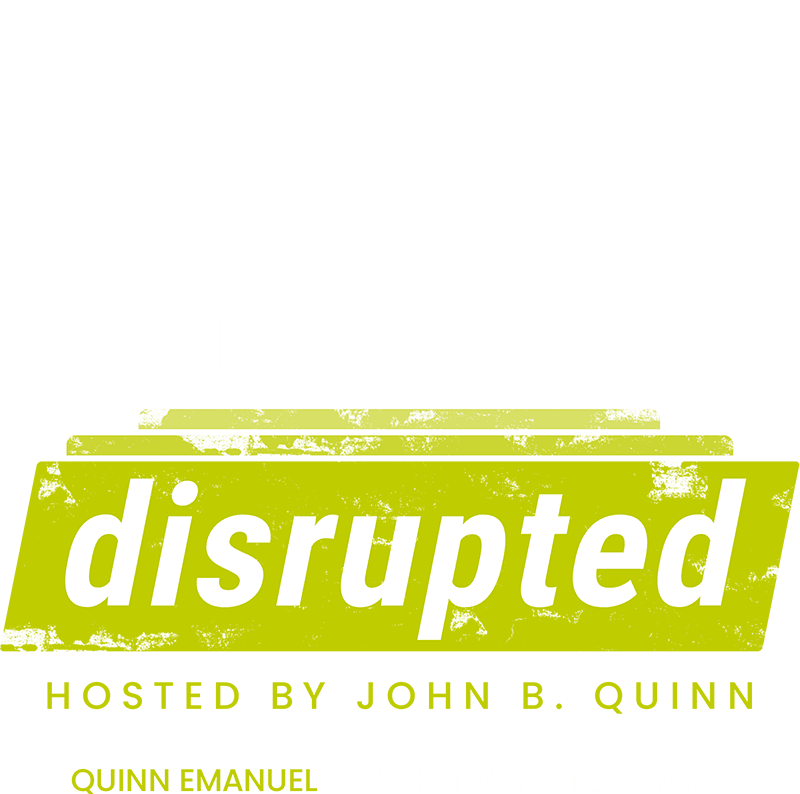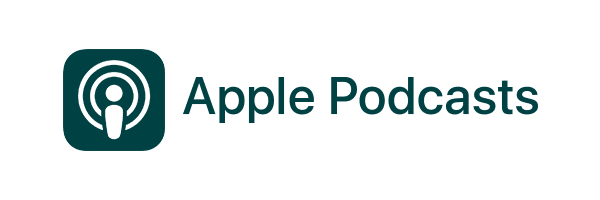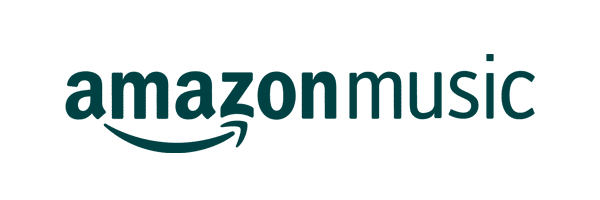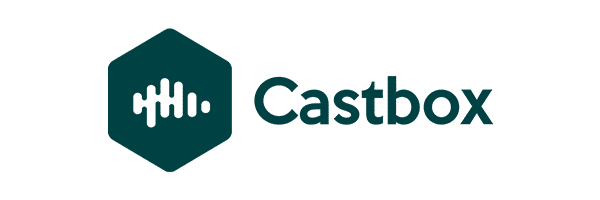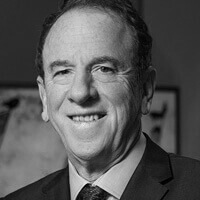Episode transcript:
Note: This transcript is generated from a recorded conversation and may contain errors or omissions. It has been edited for clarity but may not fully capture the original intent or context. For accurate interpretation, please refer to the original audio.
JOHN QUINN: John Quinn here, and this is Law disrupted. And today we’re gonna have, I’m sure a super interesting conversation, with Carolynn Levy, who is the general counsel of Y Combinator. Y Combinator is famous as being Accelerator, maybe used to be called Incubator. Maybe it’s really kind of an early stage investment fund.
But there are so many well-known, famous entrepreneurs and companies that have graduated from or come out of Y Combinator or whatever you wanna call it. It’s without a doubt, the most famous in the world at birthing companies, you know, companies that are now global companies. And Carolynn oversees all that from a legal standpoint as general counsel.
Carolynn, how long have you been general counsel at Y Combinator?
CAROLYNN LEVY: 13 years. I started in 2012.
JOHN QUINN: And, Y Combinator has been around for how long?
CAROLYNN LEVY: Over 20. 2005. Well, so yeah, exactly. Tony, I’m trying to think. We had a big 20th anniversary celebration and that was just last April. It was just April, just seems like a million years ago.
JOHN QUINN: I mean, for those who aren’t familiar with Y Combinator, certainly I think in the tech world and early stage investment world, everybody knows Y Combinator, but for those who aren’t familiar with it, can you kind of give us a description of Y Combinator? How you all see yourselves now, what you do, what your mission is, et cetera.
CAROLYNN LEVY: Well, so the way it started was that Paul Graham and Jessica Livingston started it and they had this idea that, you know, they would invest in just early stage companies, just give them a little teeny bit of money and see what happened. It was 20 years ago, like you said.
JOHN QUINN: It actually started in Cambridge, Massachusetts, didn’t it?
CAROLYNN LEVY: It did, yeah. And I will struggle to remember the year they came out here, but it was fairly, they didn’t stay in Cambridge for all that long. They quickly realized that, you know, most of the action was out in Silicon Valley, so I would wager a guess that they were out here by 2007 ish, I want to say. I could get that wrong.
JOHN QUINN: And now in San Francisco now.
CAROLYNN LEVY: Yeah, we’re up in San Francisco now, for better or for worse. We’re in the Dogpatch and I happen to love that neighborhood, so I’m pretty happy about it.
JOHN QUINN: I’ve visited you a couple of times. It’s a very cool building.
CAROLYNN LEVY: It is a cool building. Yeah. Lots of history and in fact, you know, all this World War II history, it’s actually very, very cool. Anyway, so for two, we used to, we call them batches. So we had some people call them cohorts, but we call them batches. And the groups of startups would come in in the winter and the summer, they’d get funding from Y Combinator. They would work on their product diligently for three months, and then we’d have a demo day where they would present to investors. And ideally after that they, you know, got some seed funding and went off and built huge companies. That’s the idea. A lot of them died.
JOHN QUINN: What are some of the famous companies that people will have heard of that came out of Y Combinator?
CAROLYNN LEVY: Oh, well, so, DoorDash and Air Airbnb. Stripe is a YC company. Coinbase. Oh God. I’m gonna, you put me on the spot here. There’s so many. Sorry.
JOHN QUINN: I know there’s so many that are household names like that. Yeah. Just incredible.
CAROLYNN LEVY: Yeah.
JOHN QUINN: And how many are in these cohorts or classes? Batches as you call them typically.
CAROLYNN LEVY: Batches. Yeah. So obviously there’s been a huge evolution in that regard. So they used to be very, very small. You know, it was maybe 10 startups kept growing. Every batch got a little bigger. When I joined in 2012, the summer 2012 batch had 82 companies in it, and it was the most that YC had ever taken.
And it really broke everybody. I think we weren’t prepared. So in 2013, we went back down to about 50 companies for those two batches. And then after that, starting in 2014, they just kind of got bigger every time. And we’re at about 150 startups in each batch. But the big change was that we now actually do four batches a year.
So it’s every season we fund about 150 companies and they go through, you know, the batch. And the way we were able to do this is obviously hiring partners, you know, to do all this. But we don’t, not every, the partners trade off, so if you do, if you work the winter batch, you don’t work again till the summer batch.
And so you get a batch off and to sort of regroup and the work goes on for everybody, right? Because once you’ve invested in a startup, they’re yours for a long time, right? So there’s just, the work never ends, basically.
JOHN QUINN: So when you refer to the partners, there’s partners in a fund that’s doing this investing. Is that it?
CAROLYNN LEVY: Yeah. Well, so basically the partners I refer to, there’s a management company. Okay. Because it’s fairly true, like we aren’t super traditional, but we’re set up more or less like the other venture capital fund where we have a management company and then we have lots and lots of funds, with limited partners.
The management company has most of it’s partners who are not obviously partners of the management company, but we call them partners because historically, that’s what they were. But the partners are, they’re almost I think a hundred percent YC alum. Like they’re founders that went through YC, had companies, companies had some kind of liquidation event, you know, went public or got acquired. Or in some cases the founder just, you know, moved on to do other things and they come to YC and they work. They help us pick companies and then they, you know, I don’t like the word mentoring, but you know, they help them grow. Like that’s really what the YC batch is, is you have three months of these partners who you’re having office hours with and they’re giving you all this advice on how to grow your business and, you know, whatever challenges you’re presented with, they can help you out with those. And investor relations, that kind of thing.
JOHN QUINN: So there’s basically some seed money. Does everybody get the same amount?
CAROLYNN LEVY: Yes.
JOHN QUINN: And is that public? Can you say?
CAROLYNN LEVY: Oh, yeah. It’s a, we call it the standard deal. It’s $500,000. And by the way, there’s a long evolution of that too. YC used to give $7,500 per founder, back in the very, very early days.
JOHN QUINN: That would buy some lunches and meals for a while.
CAROLYNN LEVY: Barely. Barely. And then at some point it became like 20k, regardless of the…I’m gonna get this history slightly wrong, but I think it’s like we moved it up to 20k per startup. It didn’t really matter how many founders you had.
And then at some point it got moved up to 150 and it was there for a while. And now, I think post COVID, shortly after COVID or right around COVID, we bumped it up to 500 K, which is actually a lot of money for a startup.
JOHN QUINN: That’s a substantial chunk.
CAROLYNN LEVY: It’s a substantial amount of money. Yeah.
JOHN QUINN: How many companies or founders apply to get into YC?
CAROLYNN LEVY: It’s a lot. Well, it’s probably changed very recently because we’ve gone to four batches and I unfortunately don’t have that data in front of me, but like it’s 16,000 to 20,000. Like, it’s a lot, a lot, a lot of applications.
JOHN QUINN: I mean, how do you review all of them, do you use artificial intelligence to sort through those or…?
CAROLYNN LEVY: That’s a great question. So, historically they’ve all been personally reviewed by everybody that works at YC. Well, I mean, not everybody, but you know, a group of us reviewed applications, you know, decided who was gonna be invited to interviews.
We do in-person interviews, so we, you know, winnow it down to like the people we really wanna meet in person, and then they come in and they do 10 minute interviews with us, and then we basically make a decision right on the spot. And that’s how we did it for a very, very long time. And I think one of the, sort of the more unusual things about my role is that I did that too.
And I partly hink it was like, oh, you know, it was a little bit of an all hands on deck sort of vibe because we were trying to, we wanted to fund more companies. We didn’t, we couldn’t keep up with our own sort of internal growth. So me and, you know, lots of us, we reviewed applications. We put our thoughts down.
We would be in the in-person interviews too. And, you know, one of the things that I think has been one of the most challenging things of my career here is having to write rejection emails because YC sends a personal rejection email to every team that we don’t accept that has come to in-person interviews.
JOHN QUINN: Do you give them an explanation?
CAROLYNN LEVY: Yes. Yes.
JOHN QUINN: So it’s thousands of rejections.
CAROLYNN LEVY: It’s, well, we don’t write those for the application rejections. Okay. That’s a template email. It’s more like if we’ve invited them to come and interview with us in person. So, and the theory is very basic.
If they’ve taken the time to come to meet us in person, we’re gonna do you the courtesy of telling you why we didn’t accept you into the program, you know, so we all divvy up these rejection emails and send them, and man was that probably one of the biggest struggles that I had at YC. It’s really hard to reject people.
JOHN QUINN: I can imagine. I can. After you’ve met them in person and they’ve passed some tests that you’re interested in and, then you’ve met them.
CAROLYNN LEVY: Yeah. And they’re usually so earnest and they’re usually so nice and they’re smart and you are very appreciative that they wanted to do your program.
And, sure, it’s a give get, right? Like you’re gonna get money and do our program and it’s great for, it’s, you know, it’s a mutually beneficial thing, but it also just made me, I just like, really was like, wow, these people are all coming here to meet us. And now I have to tell them we’re not gonna fund them.
It was hard.
JOHN QUINN: Yeah. What is the average age of the entrepreneurs? Do you have a sense?
CAROLYNN LEVY: Yeah. So it’s trending younger right now. I think younger people are, I’m sure this is the wrong statement, I’m not even gonna say, I was gonna say younger people may be embracing or more comfortable with ai.
I don’t think that’s true. I think all ages are comfortable with ai, but, I think for whatever reason we’re just getting a lot more applications from younger people. But I would say the average, but we don’t, weren’t agnostic on this kind of thing. So I would say our average is probably still, you know, 26, 27.
JOHN QUINN: Yeah. That’s still pretty young.
CAROLYNN LEVY: It’s pretty young. Yeah. I mean, and over the course of the 20 years, there’s probably been trends where we went through a phase where people were more like 32, you know, so it definitely isn’t constant, I’ll say that hasn’t been constant.
JOHN QUINN: Right. You said that they get some seed money, and then while they’re there in the program, there are these mentors who are available if they have problems and issues. I mean, is there anything else that they get as part of being in the program?
CAROLYNN LEVY: Well, so it’s a lifetime membership basically. So it’s a community and so you get your funding, you get to do, you know, you do office hours. We put on a lot of events actually. So there’s a lot of opportunities to, you know, meet other founders or meet guests that we bring in. But then once you’ve done the three month thing and you have demo day, you know, you’re still part of our network, you’re still part of our community. We have a platform, it’s called Bookface. That is a way for everybody to keep in touch. You can ask questions and it’s a very robust and built out sort of online community. And you can keep doing office hours. So, just because you aren’t in the program at the moment doesn’t mean that you can’t, you know, email your group partner and say, I really have this problem, I really need to talk about it, can I book office hours with you? And the answer is, yes, you can. So it’s a lifetime thing.
JOHN QUINN: What is demo day?
CAROLYNN LEVY: So demo day, we used to invite, it was really fun. We would run out the Computer History Museum. It started off in YC’s office down in Mountain View. And it was small and it was hot because there was never enough air circulation, but then we moved onto the Computer History Museum, which was down in Mountain View, which is a venue I actually love. And there’s an auditorium in there. And we invite all the venture capitalists and angel investors to this day.
And all the startups would memorize like a two and a half minute pitch. For the most part, they have slides and so they would stand up on stage and they would give their spiel into this big room of investors, and then there’d be a break. And if an investor was interested, they would go find the founder and be like, I wanna hear more, or, I wanna write you a check, or whatever.
So it was this big fun day where founders did these presentations and it was really, really festive. It’s still fun and it’s still festive, but the founders, it’s also online which is great because it reaches more people, but I don’t know, somehow without, you know, when it was live and it was not streaming, it was just like kind of a cool moment in time and I kind of miss it.
JOHN QUINN: Yeah. I mean, and over the course of time, I’m sure you’ve seen projects that you felt that you loved and that were super successful, and also seeing projects that you loved that went nowhere.
CAROLYNN LEVY: So, it’s really important to be optimistic in this business, in the startup business. And as a lawyer, and I know you’ll appreciate this, you know, our whole training is issue spot, the scary things, and then try to plug those holes with legalese or contracts or whatever. So it’s really like, that’s the training. And so you come in and you’re like, you’re the grandma. You’re the one who’s trying to reduce all the risk and the liability everywhere. But the thing about being around startups and investing in startups is you really have to be very, very optimistic.
So you hear a wild idea and instead of being like, oh my God, that’s a regulatory nightmare and they’re never gonna get anywhere with this and they’re gonna get, you know, hamstrung by this, that, and the other, it’s like, oh my gosh, that’s amazing. Tell me more. Like, I wanna know how this becomes a huge company.
And that’s what everybody at YC does. There’s a lot of obvious, like that doesn’t work all the time right. Sometimes the founders and the idea are not a fit. And so sometimes we can tell like, these are great founders, wonderful people, super smart, they have this idea we’re never gonna, you know, be super, we’re rarely negative on ideas, but like, those two things may not fit together, the founder and the idea.
Anyway, I don’t know where I got off on that tangent, but I guess my point is like, a huge thing about being around YC for this long is you learn how important optimism is.
JOHN QUINN: Well, I mean, have you, over the course of time, do you feel like your judgment as to what it takes and what it’s going, what will make a company successful and whether it will be successful or not, has gotten better?
CAROLYNN LEVY: Yes, 100%. And that’s because not only just being around it, but also because the partners. Everyone’s, you know, we do this all day every day. The partners in particular, I don’t do applications and interviews anymore. I sort of stopped doing that a couple years ago, but yes, they’re super, I learned a ton from all my colleagues.
But I would say it’s a little, arrogance is probably too strong of a word, but can I tell, like, I can probably, I can pick up on patterns. Like one of the things that you, when you have this role or you know, when you’re doing what YC is doing is, obviously pattern recognition is a huge part of it, but people defy patterns all the time and a lot of it is just timing and luck, and founders who are like way more resilient and persevere more than you ever would’ve expected them to. So, I don’t know. I’m not sure that I would be comfortable saying like, oh yes, I’m very good at predicting or finding or guessing who’s gonna be successful.
I, you know, it’s funny right on the heels of me saying how important optimism is. You do learn to pick up negative signals, you know, for sure. And I think you know, I tell you broadly like, founders who are overly obsessed about, you know, legal stuff. To me that’s a red flag.
All of the founders that I know from YC’s history, who basically ignored legal stuff, I mean, they did the minimum, but they never obsessed about it, were more successful than somebody who’s interesting, who’s cycling for two weeks on an advisor agreement, or you know, the ones that immediately are like, you know, come to the legal team.
They’re like, I need to protect my trademark. And we’re like, oh, okay. But like, probably something you can worry about later on. The ones who really wanna get insurance right away. And we were like, insuring what? Like why are you worried about insurance?
JOHN QUINN: Alright. So I think those are kind of tells that maybe this person is too concerned about the wrong things at this point.
CAROLYNN LEVY: Yeah. Like, when you’re building a startup, and again, not to be too generic about it, but like that’s your focus. Like you are obsessed with product market fit or you know, building your MVP or whatever you’re doing. And if you’re getting distracted by legal stuff, like maybe what you’re building is not working and you’re trying to pretend that it is.
So there’s some negatives, but that said, like certainly there’s successful founders who have even given us those negative founders, so it’s, nothing is forever, it’s never binary, right? No absolutes.
JOHN QUINN: There’s no absolutes. What’s more important? The entrepreneur or the idea? I know it’s, well, a question to answer.
CAROLYNN LEVY: This is a softball. It’s absolutely the entrepreneur. 100%. Oh my God. 100%. I mean, founders pivot all the time and so they’ll come in with, you know, an idea and maybe it’s great, maybe it’s terrible, but if it’s a terrible idea and they’re fantastic founders, they can figure out what the good idea is eventually.
Tons of trial and error. For some, it happens really fast. Like, I mean, it was all over the map in terms of what the stories are. But what we wanna fund are smart, resilient, flexible people who like really are able, if something isn’t working, they’re either able to solve it or they pivot to something new and they’re not afraid of that.
Investors are often afraid of pivots and we get a lot of, not a lot, we get questions like, you know, I’ve decided to do this other thing because it’s working or because I think it will be better than what I’m working on now, and my investors want their money back. Like, we definitely get those kinds of emails.
So, you know, it’s not for everybody. Some investors certainly really feel strongly about an idea and I’m not saying that’s a bad thing, I’m just, that’s not what YC does.
JOHN QUINN: Right. Tell us a little bit about your legal, your professional background and how, what led up to your getting this really interesting job?
CAROLYNN LEVY: Well, so I went straight to big law, so I summered at Wilson Sonsini in 97 and then graduated and accepted my offer there. And I spent 14 years at Wilson Sonsini. And learned a ton. I went right into a corporate securities group. And boy, did I start at a weird time. So this is 98, so Web 1.0 just before the.com.
Oh my God. And so I lived that and I think that took years off all of our lives, right? Like that was a crazy time. So I was, you know, a junior associate and it started off in 98. It was still pretty chill and, which was lucky for me ’cause I got great training because, you know, a big law is full of smart people, honestly, that you can learn a ton from.
And then it started to get wild. And I mean, we were doing, this is back in the day, John, you’ll remember this vividly. Like when you would go to lunch and you’d come back to your desk and you had 27 voicemails, because even though email was a thing, people still called a lot back in the nineties. So you’d be like, oh my God, I have 27 voicemails.
And it would be, you know, a combination of founders freaking out because their deal wasn’t closing. And you know, then you’d also, your secretary would’ve put like a bunch of checks on your desk chair. Yeah, because, so that you could like log them because they were, ’cause you had a closing and then you did an actual formal closing where you were like in a conference room and you had all this paper. Right. I still have all my closing volume. Oh, you can see them.
JOHN QUINN: Yeah.
CAROLYNN LEVY: I mean, obviously the listeners can’t, but like I still have all the, we used to get leather bound closing volumes. I’m sure you…
JOHN QUINN: I have some of those myself.
CAROLYNN LEVY: I’m sure. Yeah. So that was a really wild time. And, then it all went away.
And it was a very sad, ugly time because a lot of my colleagues got laid off and there was not a lot going on in corporate securities teams. And so I ended up doing some public, I did a quite a bit of public company work, when I was at Wilson, which I actually really like, randomly. I don’t know if a lot of people say that, but I like public companies. I did M&A there and so I stayed there for a really long time. I think I was not specifically looking for an in-house job. I think I was just not really sure. Like I wasn’t on the partnership track. Actually after my second baby, I went part-time, which I do not recommend anyone ever doing in big law.
You probably have some thoughts about that, but I think that’s just like not a good idea. But anyway, YC was a client of mine. And that was I think my comment here to be a client as an outside lawyer was odd because I couldn’t figure out who my client was because I would get a bunch of startups like asking me questions and I’m like, I don’t know, do you wanna sign an engagement letter? Do I bill YC?
It was a very confusing time for me, but I was getting to know the founders of YC decently well during this period. And at one point, Jessica, who’s one of the founders, we had lunch or something, I think this is around 2009, and she’s like, Hey, you know, we’re really busy and we could really use, I think we could really like use a lawyer. Do you wanna come work for us? And I’ve told this story a lot ’cause it just still kind of blows my mind. I was like, well, do you have health insurance? She’s like, no, we’re not that big. And I was like, oh yeah, I’m sorry, but like, I’m the one supporting, like not supporting my family, ’cause obviously my husband was working too, but we didn’t, he didn’t have like health insurance or something, so I was like, no can’t do it. Big regret. But actually not really. I don’t really have any regrets, specifically about that. And so, I then, you know, kept working for, they remained a client. And eventually in 2012, I called Jessica up. I was like, let’s have lunch again. And I said, I think I’m ready to leave Wilson Sonsini. I think I’ve been at big law long enough. So she was like, great, we’d love to have you.
JOHN QUINN: And they had health insurance by then?
CAROLYNN LEVY: Well, that, I’m sorry, that is the headline. She’s like, by the way, we got big enough and by big enough, I think we had, I think there were 14 people at YC, but it was big enough to have one of those small group health plans.
So that’s when I came over to YC and I’ve now been, like we said at the beginning here, there for 13 years. So I have almost this like perfectly 50 50. So maybe I just need to retire at this point.
JOHN QUINN: Tell us a little bit about your role as a lawyer now. You must have sorted this issue about whether the startups are your clients or whether you give them legal advice or what do you do as a lawyer?
CAROLYNN LEVY: Yeah. Well, that particular issue immediately resolved itself because now I was YC’s in-house lawyer. But you’re correct that it actually didn’t solve the problem of like, well, who am I? Who’s my client? Well, I guess I should say it did because it became very clear to me, like, okay, YC is, you know, obviously I’m the legal rep for YC.
And in a way, as an investor, we’re not, I mean, adverse is way too strong of a word, but like to the extent we’re an investor, like that’s obviously the interest I need to protect. That said, you know, these founders were close to them and they definitely look to YC’s legal team, back then and still today, for help with a number of things.
So we have to be very careful about that line. So, you know, there is no, we’re not their attorney. There is no attorney-client privilege. So there is an entire category of things that we just don’t help with. And we say we’re happy to give you a referral. And we have great relationships with, you know, all of the Silicon Valley law firms.
It’s actually such a mutually beneficial thing we have. Tons of pipeline for them, tons of potential clients, and they are very helpful. You know, they’re very happy to have startup like a whole, you know, raft of startup. And so we give business to all of them. But, we still do help, you know, obviously there’s lots of things that happen in a startup, you know, from a legal perspective for startups that don’t require calling, you know, Cooley or Goodwin or, you know, like one of these big law firms. You don’t need to call a lawyer and pay an hourly because they’re just dumb questions. They’re just like, I don’t know what this is, or I don’t know how to find this, or do you guys know what this is? And so we just answer questions like that all day long. Like all day long. Right. We have an entire, God bless us, we have written so many FAQs, but people don’t like to read FAQs. They want to just email this convenient alias we’ve given them called Ask Legal and then they just ask away. And honestly, ’cause the questions tend, obviously if it’s really complicated and sticky, like we’re not gonna get into it, we do need to refer them, but, so we just answer like random questions all day long, like I said.
JOHN QUINN: How many lawyers? What is your legal team? Your legal staff?
CAROLYNN LEVY: So I’m technically CLO. I don’t actually have the general counsel title anymore, and there’s a long, boring story about why, but I ended up with the CLO title.
I don’t even know. I’m sure everybody parses the whole in-house world, probably parses CLO and GC differently. And then I have, let’s see, we have.Oh my gosh. 1, 2, 6 other, so John Levy, my husband also works at YC, but he is technically on the legal team. He is a lawyer, but he does more of our LP relations and partnership.
Like he does this whole kind of adjacent thing. But I think with me, I think we have seven, including me. And then we have a paralegal. We have a legal ops specialist who’s amazing, because we, one of the greatest things, sorry to go off on a weird little tangent here, but we obviously, we have an in-house software team and so we have custom software that is built for us.
And so we have a, you know, we have like a whole legal operations that sort of figures out all the ways that software can help us do this math. Because we have a massive job that is rinse and repeat, right? We do investing in these startups four times a year and they are generally coming to us with just people, not entities.
So they have to form an entity. And then you know, we fund them. Sometimes they come, actually the worst scenario is when they come already formed. Maybe they already have like their parents invested in their little, you know, company. And we have to figure out how to like, you know, manage all of that.
So this whole like investing, in every batch actually is a huge job. And that’s what a, you know, the legal team spends a ton of time doing that. And then when the startups raise money. We have to look at all their financing documents. because we are an investor, we often exercise pro rata, so we put more money in when a company raises the priced round.
So there’s just, it’s just a lot. Yeah and my little team, by the way, does amazing. Like, I don’t think YC, I don’t think it serves YC to have a massive legal team just in terms of culture. I don’t think that’s the culture we want. So the legal team is small, but it’s filled with very diligent, hardworking, smart people.
JOHN QUINN: Yeah. What, would you say the biggest challenges that you face as a lawyer in your role are?
CAROLYNN LEVY: Well, this one is happening a lot right now. So maybe this is top of mind, but, founder breakups take up a lot of time and can be very emotional and very difficult. So what happens is you have, you know, these, these founders and I think they, you know, their startup ends up kind of feeling like their child right?
The IP or the company, whatever. It’s like they have a baby and then they decide they can’t work together anymore for, I mean, a million reasons, including, this is a long time ago, but we actually had brothers who were co-founders and they broke up and I actually didn’t even think that a founder team that was literally siblings could break up, but they had the nastiest falling out.
Anyway, so, all kinds of founder teams can break up and they break up for all different reasons. And then they often spend a ton of time fighting over the company and you know, YC’s just put half a million dollars and there’s often other investors who have, of course there’s other investors who’ve put money in as well.
And it’s just so sad and frustrating to watch, you know, these people fight over this company. And it sometimes ends amicably, I mean, but sometimes it just ends in like stalemate, like a deadlock and nothing happens. And it’s kind of very hard to navigate those. And we try to help, right?
But we also don’t wanna get too involved. It’s like these people need to figure it out, these founders. But, we spend a lot of time on that and we’ve been spending a lot of time on that in the recent batches for whatever reason. So that’s a challenge. Bbviously this is probably something you can relate to.
Like YC is a huge, it’s a brand, right? And so I spend a fair amount of time just trying to make sure that the brand is protected. And big law firms have good brands too, that I’m sure you’re very interested in making sure you know that your brand is protected. It’s like, it’s a job. I told you, like all of our alums, it’s a community, right? So once you do YC, you’re an alum and you get to stay in the community. But not every community is full of 100% wonderful people. You know, communities have bad apples.
JOHN QUINN: Mm-hmm.
CAROLYNN LEVY: So that’s another challenge, you know, you have a founder and often they feel extremely close and wedded to YC, but they’ve done something, you know, we have an ethics policy. They may have done something that we consider an ethical breach. And it’s like, I’m sorry, but you’re being excommunicated. Like you can’t be in this community anymore. That’s a challenge ’cause again, it involves feelings and emotions and people feeling bad and sometimes getting very angry at us. And you know, I’m not a litigator. I didn’t get into this job to have people be mad at me.
JOHN QUINN: So, but I mean, look, you must have, you’ve got a front row seat on what’s happening in the startup world in this country and maybe globally. Because I assume a lot of the participants in these batches come are international.
CAROLYNN LEVY: Yeah, they are, which is, so that’s another thing, that’s another challenge. I’m glad you brought that up because immigration is something we can’t help with very much, but we try to give, you know, directional guidance on immigration and there are so many smart people from all over the world who want to come to the US and start companies and it’s been very, I mean, someone once said, you know, immigration is an art, not a science. And I think it’s like a dark art. It’s very weird and it’s getting darker. It’s getting weirder and harder to navigate and more disappointing for founders and harder to get visas. So it’s kind of a quagmire and I don’t know how that will end up.
We are very much hopeful that you know, I’m in favor of brain draining the world and having them all come, but again, that’s a you know, sort of a dicey political topic. And I don’t mean to make any broader comments about that, but it’s just great to have smart people be in the U.S. wanting to start a business because they employ U.S. people. So that’s a good thing.
JOHN QUINN: What a great, what a fantastic job you have. I envy you and no doubt it has these challenges, but you’re seeing what’s on the horizon, every day.
CAROLYNN LEVY: Yeah. It’s very fun. It’s a great job. I’m obviously like I said, I don’t really have a lot of regrets career wise.
I think it was great to learn a ton of stuff at Big Law and then come to this really fun place and apply it all. And I work with incredibly smart people, and the founders are, you know, smart and they’re doing super interesting things, and so, yeah, it’s like, pretty awesome. Yeah.
JOHN QUINN: Thank you very much, Carolynn.
We’ve been talking with the chief legal officer of Y Combinator Carolynn Levy, this is John Quinn and this has been Law disrupted.
Thank you for listening to Law disrupted with me, John Quinn. If you enjoyed the show, please subscribe and leave a rating and review on your chosen podcast app to stay up to date with the latest episodes. You can sign up for email alerts at our website. Law disrupted fm or follow me on X at JB Q Law or at Quinn Emanuel. Thank you for tuning in.
Published: Oct 28 2025
